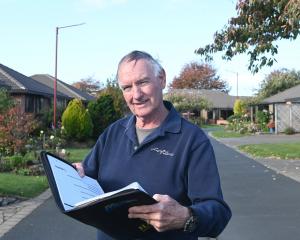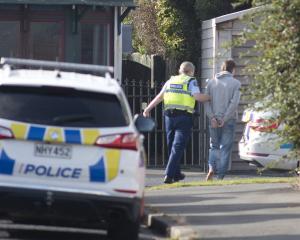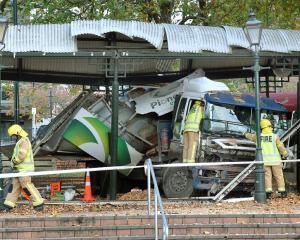
A council committee heard submissions on its draft destination plan, which outlines how the city plans to market and manage Dunedin as a destination, and how it will attract new visitors, students, migrants, workers and investors.
However, education, literary and other organisations felt they had been left out.
Waikouaiti Coast Community Board chairman Alasdair Morrison said board members' reactions to the plan were ``far from positive''.
``This document could almost be considered the minutes of a think-tank,
rather than an actual plan.''
The board wanted data in the plan about tourism, projections for the future and plans to deal with it.
``This doesn't have any detail - there's nothing in there,''
Mr Morrison said.
Word of mouth was ``very, very important'', and the board was concerned about the response if the council adopted a ban on non-self-contained freedom campers, he said.
Study Dunedin advisory board spokesman Mike Waddell said education needed to be part of an integrated destination plan.
``It's very, very important.''
Dunedin had about 5000 international students studying at the university, polytechnic or secondary schools.
``The really good news is just about everybody is reporting an increase this year,'' Mr Waddell said.
But something that ``doesn't come out at all'' in the proposed plan was the positive economic impact education had.
``The plan must be based around good, solid economic data.''
The advisory board also wanted an integrated city-wide marketing plan.
``I don't believe we have an integrated plan, but we have a whole lot of people marketing the city.''
City of Literature director Nicky Page told the hearings committee of deputy mayor Chris Staynes and Crs Christine Garey and Andrew Whiley she worked in partnership with Enterprise Dunedin on multiple projects, but that partnership ``is not captured in the strategic plan''.
She saw City of Literature status as an integral part of Dunedin's brand, and just as important as other key strands, she said.
There were 20 Cities of Literature worldwide, which represented ``a huge gateway'' for international opportunities, something it was not possible to put a price on.
``This, to me, seems like a key opportunity to be an integral part of our destination brand for Dunedin.''
University of Otago international director Simon Chu told the committee the almost 2600 international students at the university spent on average $45,000 each in the city.
Their parents were also inclined to visit the city, and there were 1.7 visitors for every student.
The university was itself a destination, both for education and tourism.
Mr Chu asked for the committee to consider ``beautification and gentrification'' of the north Dunedin area.
A possible example was to provide a cobbled ``walk zone'' between the botanic garden and the university.
``If that was cobbled and planted, all of a sudden we've created a unique destination.''
The issue of buses arose during questions, Mr Chu saying he had received feedback from students they did not run on time.
Buses also did not run to places students wanted to go, such as Tunnel Beach, Sandfly Bay or Orokonui EcoSanctuary.
``There is no bus to the airport.''
Bus Go Dunedin co-president Peter Dowden said Dunedin was the only city in New Zealand with an international airport with no bus service.
There were benefits from a closer relationship between the bus service and tourism, he said.
Sustainable Dunedin's Jenny Nielson raised concerns tourism was vulnerable because of overcrowding and carbon emissions from air travel.
Queenstown, for example, had lost its appeal because of high costs and overcrowding, she said.
Submissions continue today.












